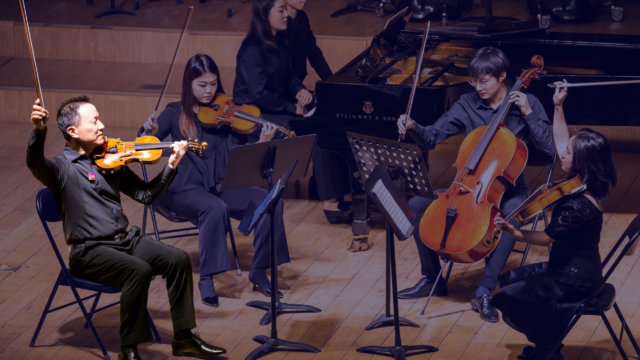Health and Wellness – Serving Neurodivergent Audiences

Neurodiverse individuals are an integral part of every orchestra’s community, and can find great value in attending concerts. However, traditional orchestra settings may present sensory or accessibility challenges. Sensory-friendly and adaptive performances are designed to create a more inclusive experience, ensuring that all audience members can engage with and enjoy the music comfortably.
Maryland Symphony Orchestra: Performances for People with Special Needs
“Many of our participants had previously felt excluded from traditional concert settings, where the atmosphere often demands silence, stillness, and rigid expectations,” says Director of Development Jennifer Sutton. “By creating a space where people could engage with the music on their terms—whether by moving around, expressing themselves, or simply being in a calming, supportive environment—we witnessed the profound and transformative impact these performances had.”
Music & Well-Being concerts are designed to promote self-healing by inviting attendees to experience music in a way that honors their individual needs. Since 2022, the MSO has brought dozens of these ensemble concerts per year to public parks, community spaces, and other open areas as a source of healing and connection for individuals facing physical and intellectual challenges, as well as those with sensory sensitivity. Over time, MSO musicians have learned what to expect and how to engage with audiences of children and adults with a wide range of intellectual and developmental disabilities.
“Music & Well-Being has really resonated with people,” says Sutton. A group of health care professionals have come together to match contributions to a fund that enables the MSO to provide these concerts free of charge. Everyone on the MSO’s small staff gets involved: the marketing director connects with hosting institutions and the orchestra manager handles production.
The key has been partnering with numerous organizations, most recently The Arc of Washington County, whose expertise is with neuro-divergent populations. Sutton has found that healthcare professionals have great ideas about how to incorporate music. “Every time you try to invent something it takes resources,” she notes. “They’re already working with the population. We can provide the music if you provide the guidance.”
More Examples of Initiatives to Serve Neurodivergent Audiences
Rochester Philharmonic: Care & Wellness Initiative
A free, sensory-friendly concert celebrating the solar eclipse of 2024 was presented in a relaxed setting where listeners were encouraged to get up and move freely. A therapy dog was available just outside the concert hall. For attendees with auditory sensitivities, noise-reducing headphones were provided, and the orchestra never played louder than mezzo-forte. Other accommodations included a quiet room and materials sent ahead to help concertgoers prepare for their concert hall experience.
Atlanta Symphony Orchestra: Adaptive Concerts
The education team at the Atlanta Symphony have worked to create a know-before-you-go social narrative and Spotify playlist allowing families familiarity before their trip to the hall. Upon arrival, there is an option for a quiet room outside of the concert hall, with its own live feed of a performance in progress, to provide a space for neurodivergent audience members to enjoy music in their own way. As part of its accessibility commitment, the ASO also provides sound-dampening headphones for attendees in the hall who can be disturbed by sudden loud sounds, including some with autism spectrum disorder.
Lincoln Center: Big Umbrella Festival
The annual Big Umbrella Festival offers theatre and music designed with and for neurodiverse audiences—kids, teens, and young adults. The April 2025 festival featured When The World Turns, an immersive theatrical experience that invites audiences into a wondrous landscape of foliage, light, sounds, and shadows; a reinvention of Shakespeare’s Hamlet by Teatro La Plaza where the stories of people with Down syndrome take center stage; an outdoor “spinning tops” installation by Esrawe and Cadena; Comedy Night with ReelAbilities Film Festival; and the Chamber Music Society in two relaxed musical performance workshops, created for children with sensory and autism spectrum disorders.
Photo: A child dances along with the Toronto Symphony Orchestra’s Relaxed Performance for neurodiverse audiences on April 27, 2019. Photo by Jag Gundu.
Related
-
Learn | Education & Community Engagement
Education and Community Engagement and Youth Orchestra Survey 2025
-
News | Advocacy
Policy Action Ahead as Congress Returns to DC
Become a member
Thank you for your interest in the League of American Orchestras! We are dedicated to advancing the orchestral experience for all.
Join Now